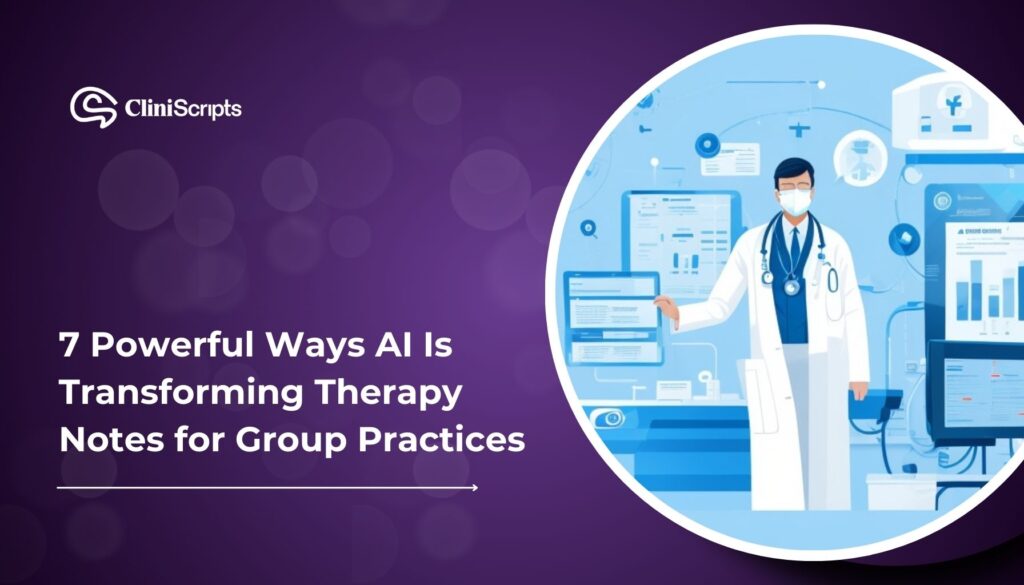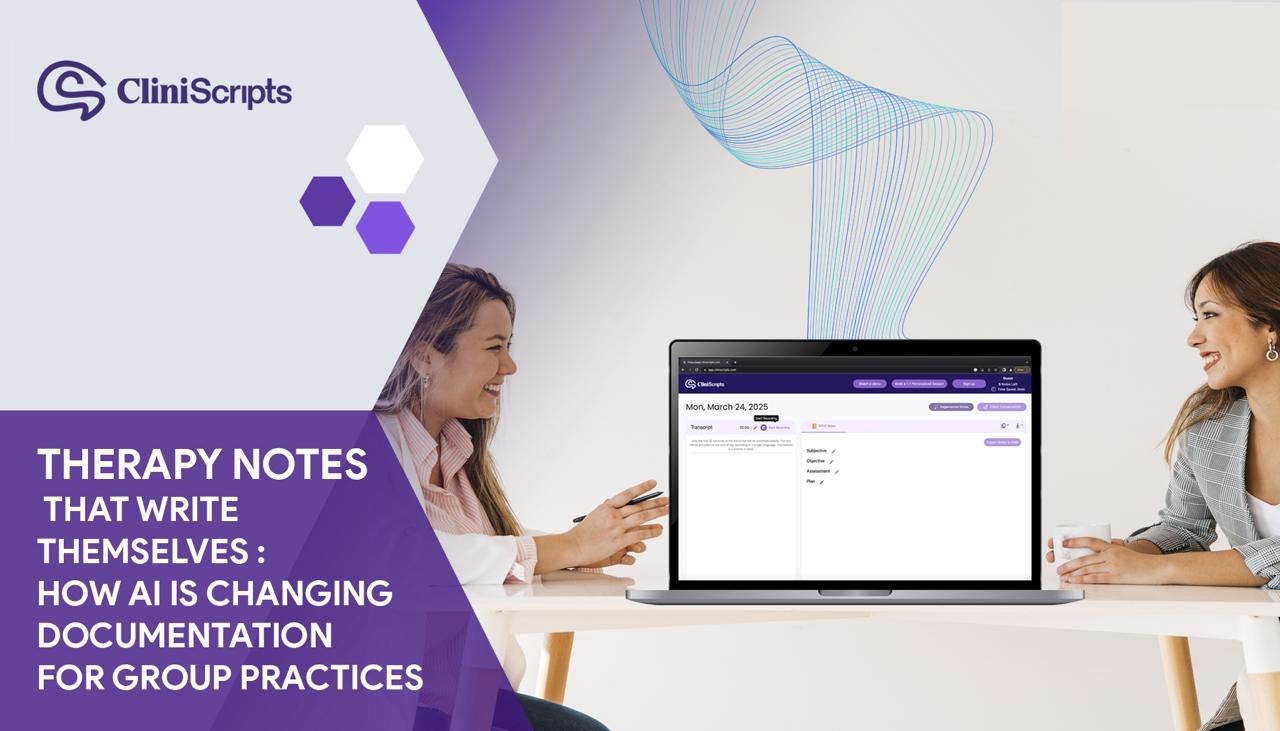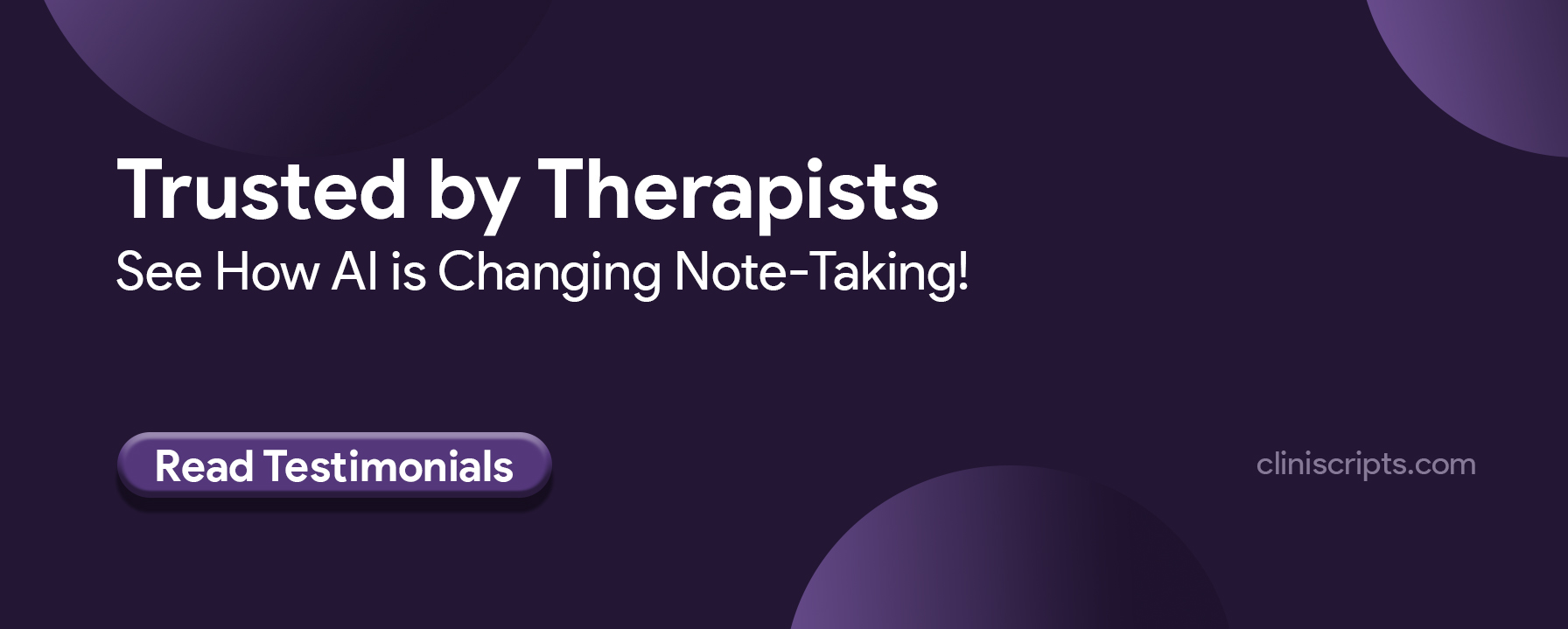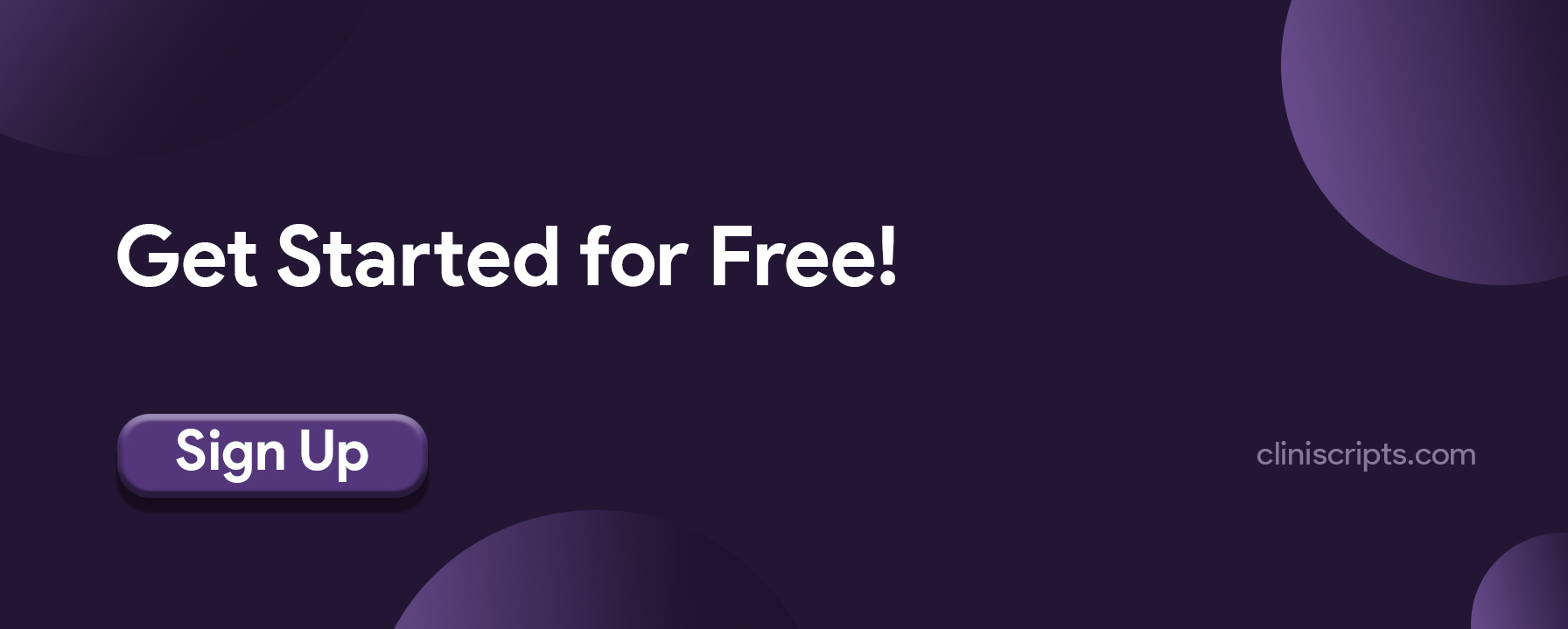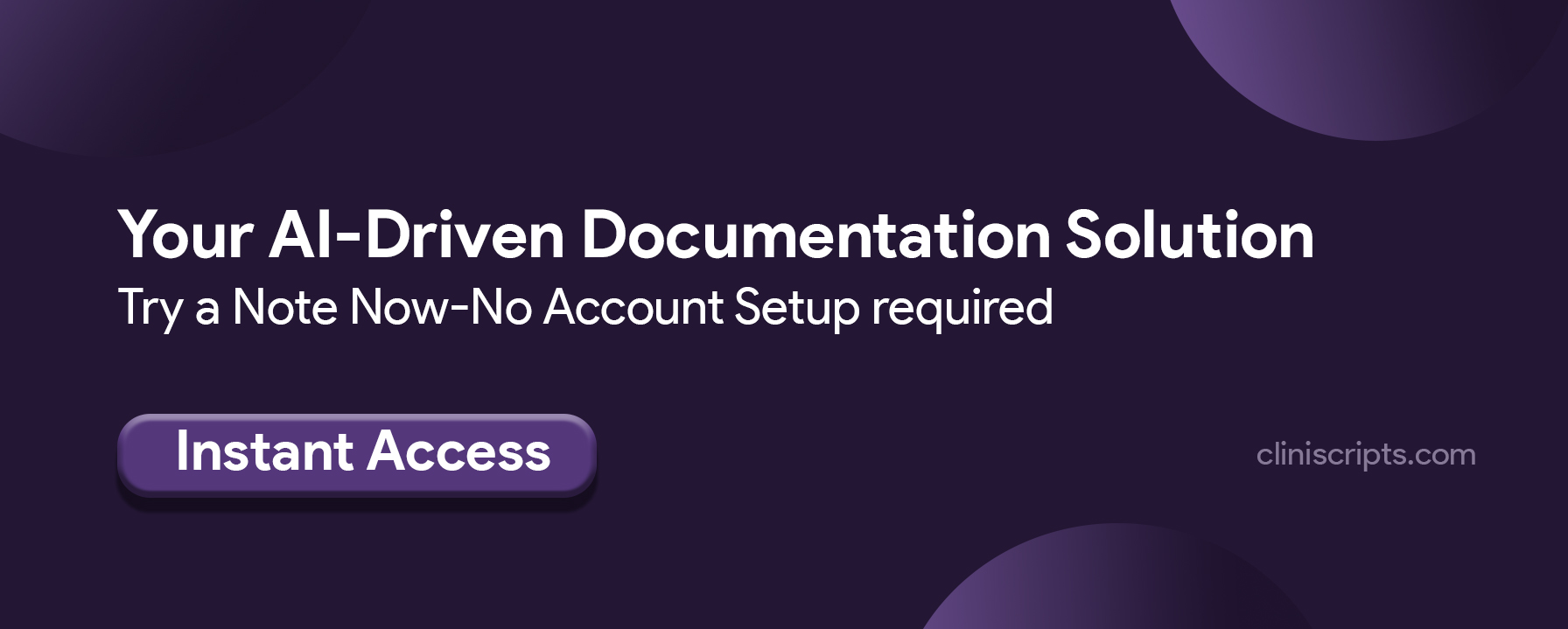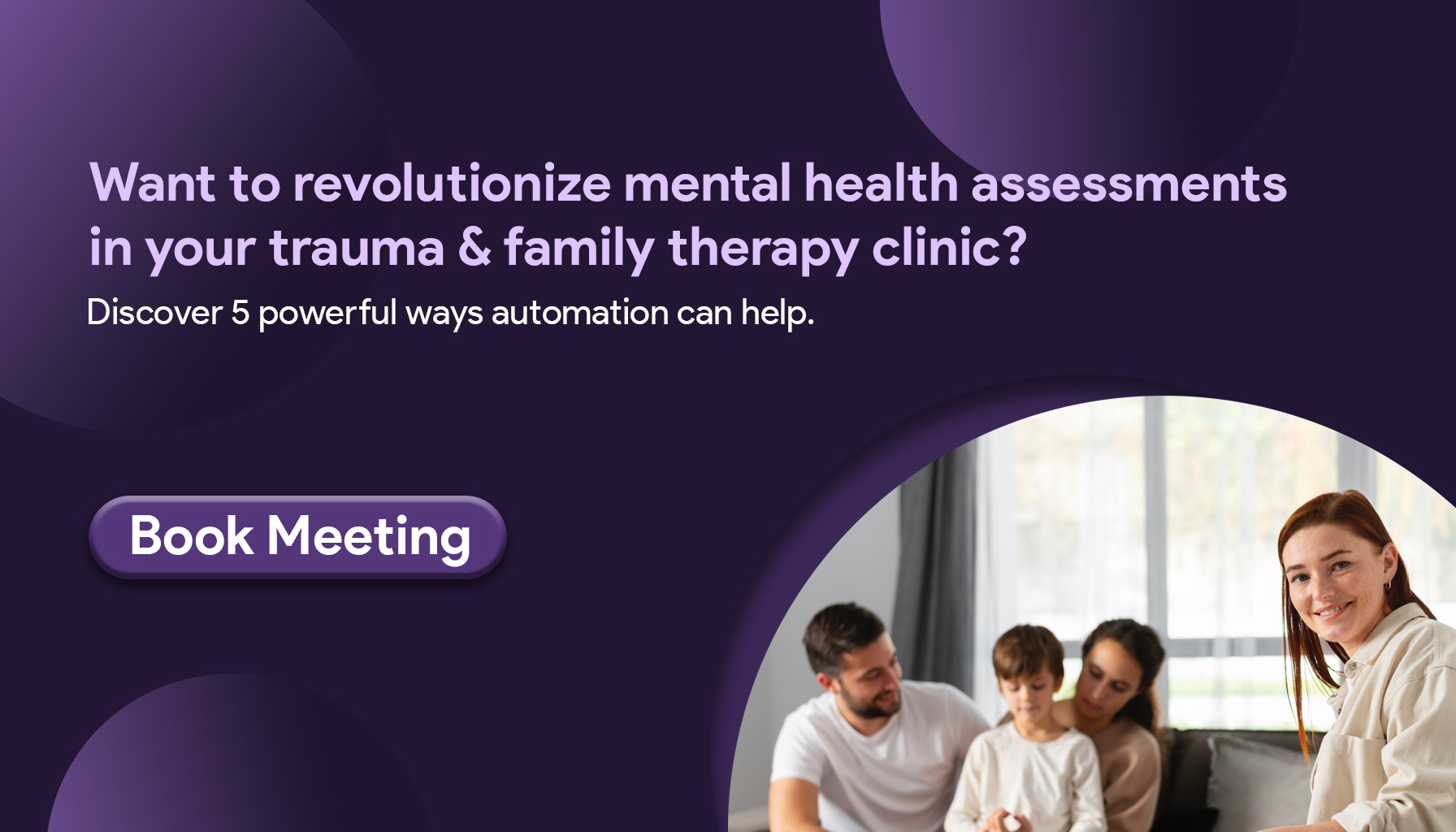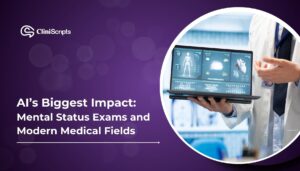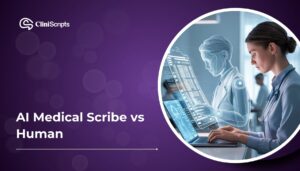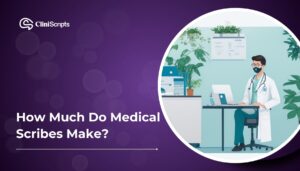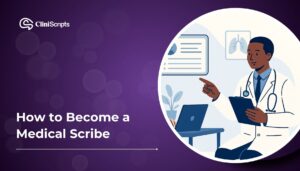In today’s mental health care, especially in group practice, the documentation burden is always there. Fortunately, artificial intelligence is transforming how therapists manage therapy notes—streamlining workflows, reducing stress, and allowing clinicians to do what matters most: working with their clients.
The Hidden Burden of Therapy Notes in Group Practices
— Why Improving Clinical Documentation Matters
Documentation is a fact of therapy. Practitioners have to keep thorough records of every session, including progress notes, treatment plans, and intake summaries. In group practices, this amount is doubled, creating pinch points around the team.
As we discussed in our post on AI note-taking solutions in mental health, these issues can be eased with the right tools.
Some of the problems most frequently encountered are:
-
Wasting hours of evening time completing notes
-
Potential for inconsistent or incomplete documentation
-
Delayed billing because of backlog
-
Rising rates of therapist burnout
These issues involve not just the individual practitioners, but also the effectiveness and reputation of the group practice in general. That’s why finding the right clinical documentation improvement strategy becomes essential.
What Is Note-Taking AI and How Does It Work?
— The Rise of AI Mental Health Transcription and Psychological Transcription
Note-taking AI is not simply speech-to-text technology. It combines mental health transcription with smart automation to create formatted, clinically relevant electronic therapy notes.
This is what contemporary note-taking AI software such as CliniScrips offers:
-
In-session dialogue transcription accuracy
-
Clinical term recognition like symptom, goal, and intervention
-
Automatic framing into SOAP, DAP, BIRP, or other standard formats
-
HIPAA compliant mental health notes and PIPEDA-compliant storage
This automation accelerates clinical documentation, rendering it more uniform—without sacrificing quality or professionalism. It’s more than just knowing how to transcribe audio to text—it’s about doing it with clinical relevance.
Why AI-Powered Therapy Notes Are Important for Group Practices
— From Therapy Notes Automation to Clinical Documentation Improvement
AI is not a luxury; it solves core problems group practices encounter daily. Below are some of the key advantages of adopting AI mental health transcription and documentation tools:
1. Saves Hours Every Week
Therapists can reduce time on notes by up to 50%. That’s several hours saved weekly—allowing clinicians to see more clients, take reasonable breaks, or leave work on time. This is especially valuable for practices using mental health transcription services.
This time-saving benefit is echoed in breakdown of the top 5 medical scribes for therapists, where she outlines how AI-powered tools consistently help clinicians reclaim hours from admin work each week. Her review reinforces a growing trend—therapists are turning to intelligent documentation assistants not just for convenience, but for sustainability in their daily practice.
2. Improves Note Accuracy and Consistency
By organizing content automatically, AI note-taking helps reduce errors and ensures compliance with clinical and insurance regulations. This kind of automated therapy notes system creates consistency, especially when multiple clinicians work within one group practice.
3. Burnout is Reduced and Retention is Enhanced
Therapists who aren’t weighed down by administrative burdens are less likely to burn out. Happier clinicians stay longer and perform better—critical to group practice stability and growth. AI functions here almost like a therapy aid, enabling smoother operations.
4. Onboarding New Therapists is Simplified
Through note formatting and AI-managed reminders, new clinicians can focus on clinical work rather than documentation systems training. Automated note-taker tools help remove friction in the learning curve.
Why Group Practices Are Turning to CliniScrips
— A Therapy Aid with Medical Transcription for Mental Health in Mind
CliniScrips is crafted particularly with mental health professionals in focus. Unlike general-purpose tools, we offer therapy transcription services that understand the tone, ethics, and nuances of therapeutic conversation.
How is CliniScrips Different?
-
Therapy-Specific Intelligence – Detects therapeutic speech and adjusts to your approach
-
Privacy First – Secure, confidential therapy, and fully compliant
-
Customizable Formats – Choose between SOAP notes, DAP, or design your own
-
Seamless Voice Integration – Speak naturally; let AI do the rest
Whether you’re a psychologist or psychotherapist, or looking to better understand the difference between the two, CliniScrips supports both professions. We’re not just a medical scribe—we’re a smart assistant for clinical minds.
Looking Ahead: The Future of AI in Therapy Documentation
— Automated Insights and Mental Health Dictation Services
We’re just scratching the surface. In the near future, note-taking AI will do even more:
-
Flag incomplete sections or missing clinical documentation
-
Suggest potential diagnoses or interventions based on prior sessions
-
Provide automated insights through dashboards and clinical data management software
As AI tools evolve, they’ll become trusted partners—not just for documentation, but for enhancing care quality across every level of your group practice.
Conclusion: Less Admin, More Care
— How Automated Therapy Notes and Note-Taking AI Support Confidential Therapy
Group practices are built on trust and collaboration. When documentation becomes a shared challenge, it affects everything—from client satisfaction to therapist well-being. By integrating therapy notes automation, practices can recover time, ensure quality, and build a healthier work environment.
With CliniScrips, your treatment notes practically write themselves—so you can focus on your clients, not your keyboard. Whether you’re seeking electronic health records, trying to transcribe audio to text, or comparing a psychotherapist vs psychologist, we’re here to help you stay focused on care.
Want to dive deeper into AI-powered documentation? Explore all our blog insights for therapists and group practices

